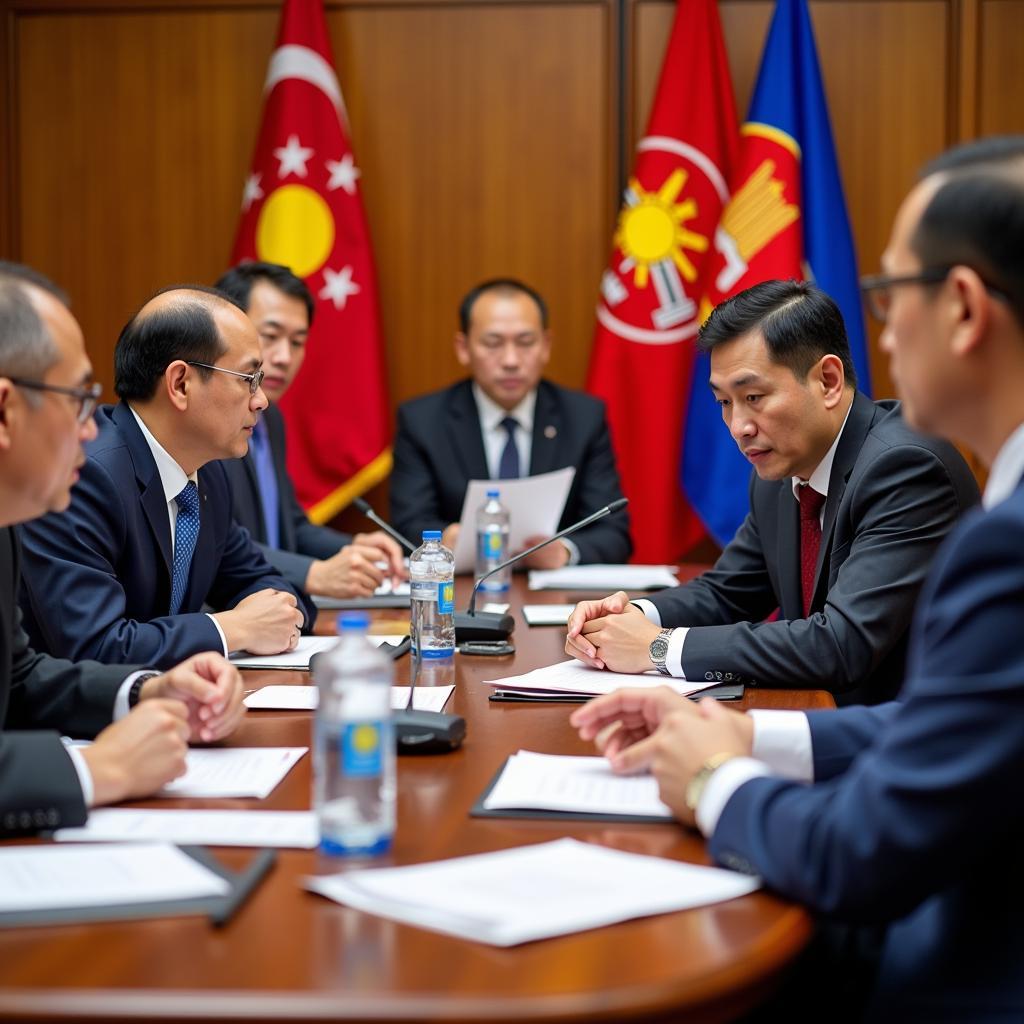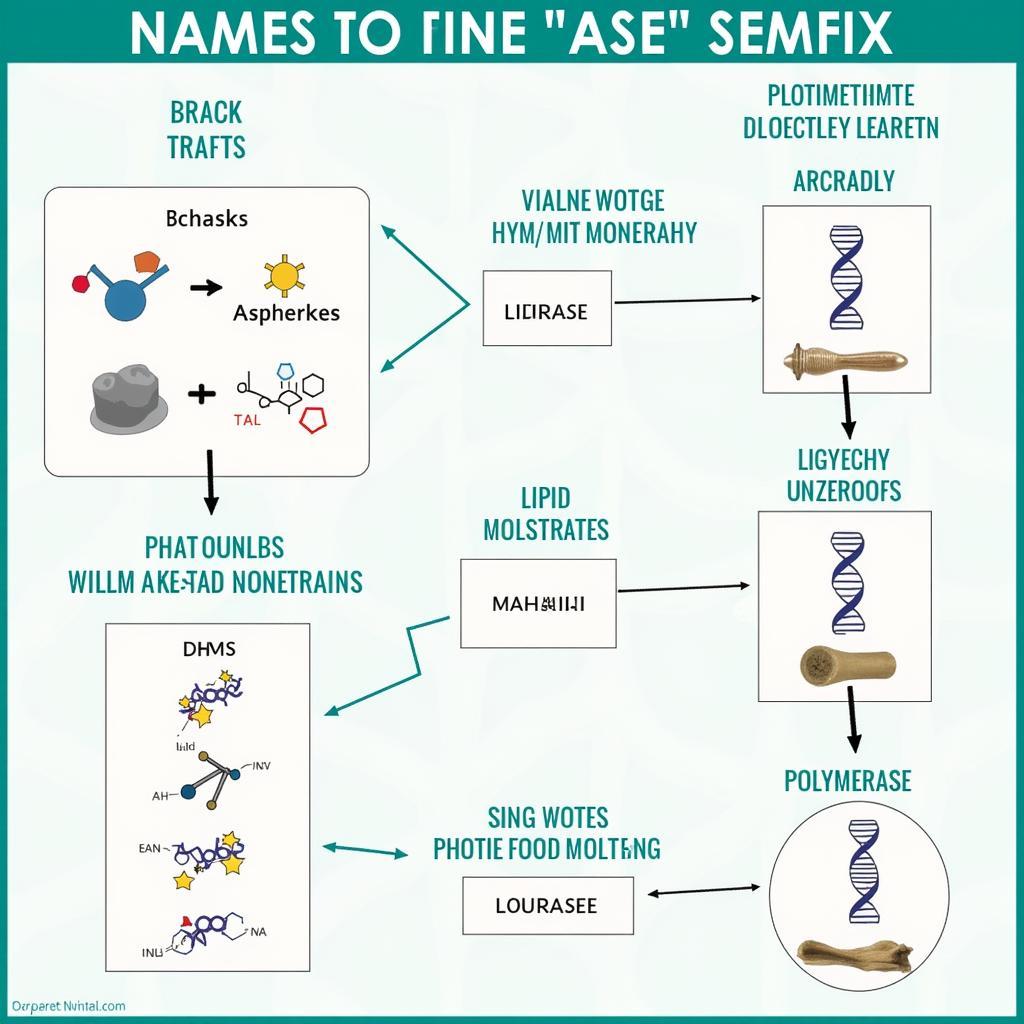The ASEAN Code of Conduct (ACOC) stands as a critical framework guiding the behaviour and interactions of member states within the Association of Southeast Asian Nations (ASEAN). It represents a commitment to peaceful coexistence, cooperation, and the peaceful resolution of disputes, shaping the geopolitical landscape of Southeast Asia.
 ASEAN Code of Conduct Meeting
ASEAN Code of Conduct Meeting
Historical Context and Development
The journey towards the ACOC began amidst the backdrop of the Cold War, with ASEAN established in 1967. Initially, the focus was on promoting economic growth, social progress, and cultural development among its members. However, the evolving geopolitical realities of Southeast Asia, marked by territorial disputes and power dynamics, necessitated a more comprehensive framework for managing inter-state relations.
The ACOC, adopted in 2003, marked a pivotal moment in ASEAN’s history. It signified the regional bloc’s transition from a forum for dialogue and cooperation to an organization actively shaping norms and principles governing its members’ conduct.
Key Principles of the ASEAN Code of Conduct
At its core, the ACOC outlines a set of principles designed to foster trust, prevent conflict, and promote peaceful resolutions. These include:
- Mutual respect for sovereignty, territorial integrity, and national identity: This underscores the commitment to respecting the existing borders and the right of each member state to self-determination.
- Non-interference in the internal affairs of other states: This principle emphasizes the importance of respecting the domestic political processes and decisions of fellow ASEAN members.
- Renunciation of the threat or use of force: The ACOC emphasizes peaceful resolutions to disputes, rejecting the use of military force or coercion.
- Peaceful settlement of disputes: Mechanisms for dialogue, mediation, and arbitration are highlighted as the preferred means of addressing conflicts.
- Effective cooperation among member states: The ACOC encourages collaboration on various fronts, including political, economic, and security matters.
The Significance and Impact of the ACOC
The ACOC holds immense significance for Southeast Asia and beyond. By promoting a rules-based order and peaceful conflict resolution, it contributes to:
- Regional Stability: The ACOC acts as a deterrent against unilateral actions and promotes a climate of dialogue and cooperation, fostering stability in a region often marked by complex geopolitical dynamics.
- Enhanced Cooperation: The principles of the ACOC provide a foundation for increased collaboration on various fronts, including trade, investment, and security, benefiting all member states.
- Strengthened ASEAN Unity: By adhering to a common set of principles, ASEAN members foster greater unity and solidarity, enhancing the bloc’s influence on the global stage.
Challenges and Future Directions
While the ACOC represents a significant achievement, challenges remain in its implementation and enforcement. These include:
- Lack of Binding Mechanisms: The ACOC is not legally binding, which raises questions about its enforceability in cases of non-compliance.
- Differing Interpretations: Varying national interests and perspectives can lead to diverse interpretations of the ACOC’s principles, potentially hindering its effectiveness.
- Emerging Security Challenges: The rise of non-traditional security threats, such as transnational crime and cybersecurity, requires ASEAN to adapt the ACOC to address these evolving concerns.
Despite these challenges, the ACOC remains a cornerstone of ASEAN’s commitment to peace and stability in Southeast Asia. Continued dialogue, cooperation, and a willingness to adapt to changing realities will be crucial to ensuring its relevance and effectiveness in the years to come.
FAQs about the ASEAN Code of Conduct
1. Is the ASEAN Code of Conduct legally binding?
No, the ACOC is not legally binding. It serves as a politically binding agreement, relying on the commitment of member states to uphold its principles.
2. How does the ACOC address territorial disputes?
The ACOC emphasizes peaceful settlement of disputes through dialogue, consultation, and negotiation, urging member states to refrain from the threat or use of force.
3. What is the role of the ACOC in promoting human rights?
While not explicitly focused on human rights, the ACOC’s principles of peaceful coexistence, cooperation, and respect for sovereignty indirectly contribute to a more stable and secure environment, which can be conducive to the protection of human rights.
4. How does the ACOC contribute to ASEAN’s relationship with external partners?
The ACOC provides a framework for ASEAN’s engagement with dialogue partners, promoting principles of peaceful coexistence and cooperation as the basis for regional and international relations.
5. What are the future prospects for the ACOC?
ASEAN continues to explore ways to enhance the ACOC’s effectiveness, including discussions on developing a legally binding Code of Conduct in the South China Sea, a region of significant geopolitical importance.
Need More Information?
For further insights and analysis on this crucial topic, we recommend exploring related articles on our website:
Have more questions about the ASEAN Code of Conduct and its implications for the region? We’re here to help! Contact our team at Phone Number: 0369020373, Email: aseanmediadirectory@gmail.com, or visit us at our address: Thon Ngoc Lien, Hiep Hoa, Bac Giang, Vietnam. Our customer service team is available 24/7 to assist you.


